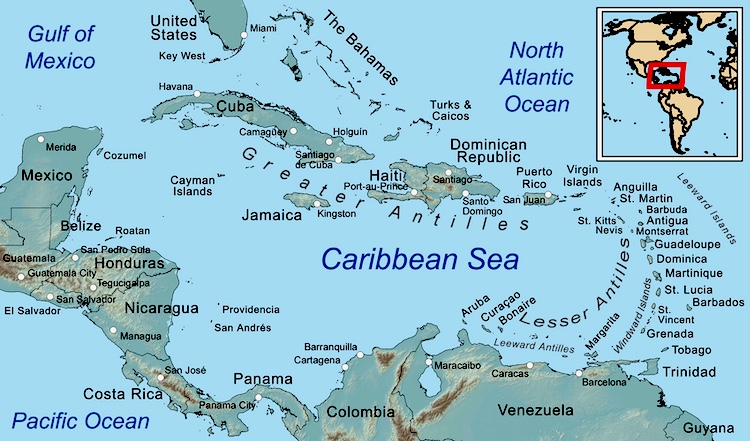By J C Suresh
TORONTO (IDN) — A new report has warned that fraud in the Caribbean region is widespread and generates hundreds of millions of dollars in criminal proceeds yearly. The report entitled Financial Fraud in the Caribbean draws on interviews with subject matter experts from law enforcement, financial intelligence units (FIUs), financial services commissions (FSCs), multilateral organizations, the private sector, and the media.
“Fraud, like other crimes, is a continuously evolving phenomenon that reacts to local, regional, and international developments,” explains the President and CEO of the Global Financial Report (GFI), Tom Cardamone. “The public and private sectors, as well as the region’s citizens, must be alert and responsive to the dynamics of long-standing and nascent fraud schemes.”
The report analyses the actors and facilitators involved in financial fraud, the methods of contact used by perpetrators, and the channels utilized to move the associated proceeds. It also assesses current policy and law enforcement responses. In addition, the report provides five country case studies, examining the country contexts in Antigua and Barbuda, Barbados, Belize, Jamaica, and Trinidad and Tobago.
Utilising the interviews as well as background research, the report i) considers the effectiveness of the region’s response to fraud, explicitly exploring the success of the national and/or regional efforts, ii) scrutinizes the source of those weaknesses as well as iii) evaluates performance in four key areas: prevention, detection, investigation and prosecution.
The following are some of the key observations of the report:
The most common fraud types in the Caribbean include advance fee frauds, specifically lottery/prize scams, online shopping scams, romance scams, and pyramid and Ponzi schemes.
Pyramid schemes in the region frequently take advantage of citizens’ comfort and familiarity with “sou-sous”, a legitimate, informal community savings practice.
The method of contact between victim and fraudster is oftentimes dependent on the type of fraud being committed, the sophistication of the schemes and the type of victims involved. For example, lottery scams are largely phone-based while romance scams are perpetrated online and through social media.
According to interviews with subject matter experts, the primary channels used to move the proceeds of fraud are cash smuggling, money service businesses, bank transfers, trade-based money laundering, and online money transfer platforms.
Caribbean countries have laws to cover the fraud types discussed in this report. However, many countries face challenges when translating these laws into practical enforcement actions.
The prevention and investigation of fraud in the region face cultural barriers. Some citizens may incorrectly perceive the governments’ efforts to combat fraud as an attempt to prevent them from making money. Others may be hesitant to report fraud victimization due to cultural stigma.
In Jamaica alone, experts assessed the annual value of fraud proceeds at up to US$800 million.
Selected recommendations of the report for the public and private sectors include:
While awareness campaigns are being used to sensitize citizens to risks, the public and private sectors should take additional steps to assess and improve the effectiveness of these campaigns.
Given the prevalence of investment fraud schemes, governments should make it easy for potential investors to verify those individuals and companies registered to conduct business in a jurisdiction.
Prosecutors working on fraud cases should explore using tax legislation when civil asset forfeiture is not available.
Policymakers should evaluate current consumer protection legislation for potential improvements.
Countries in the region should create courts that only address financial crime cases.
Recognizing that all jurisdictions face financial crime threats, the private sector should take steps to assess and mitigate risk in a nuanced, evidence-based manner, avoiding “de-risking”. [IDN-InDepthNews — 15 December 2022]
Image: The Caribbean map. CC BY-SA 3.0
IDN is the flagship agency of the Non-profit International Press Syndicate.
We believe in the free flow of information. Republish our articles for free, online or in print, under Creative Commons Attribution 4.0 International, except for articles that are republished with permission.

